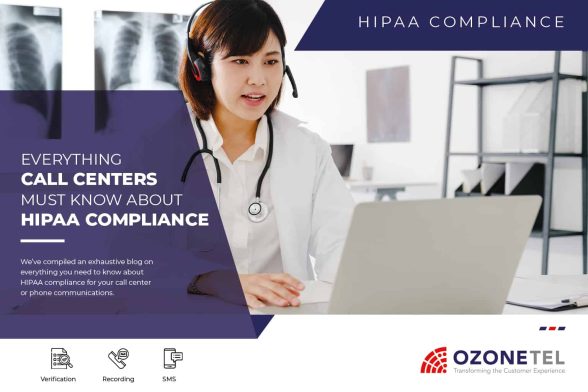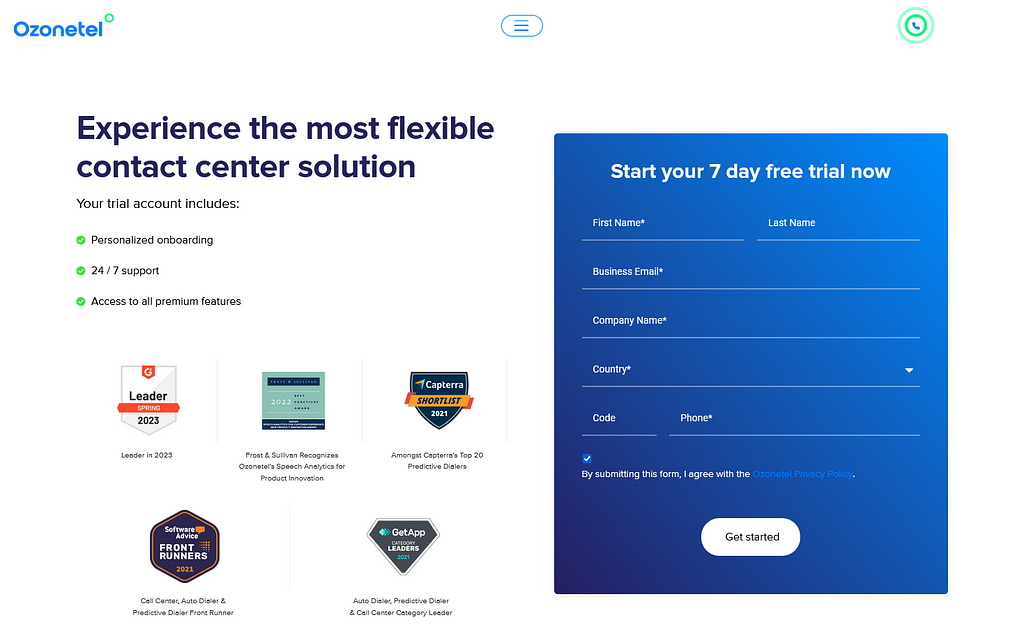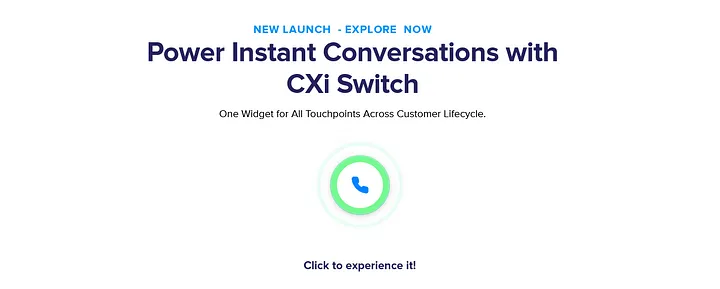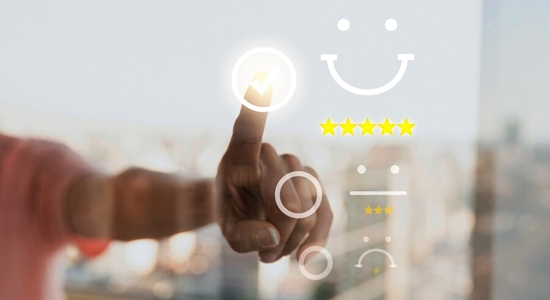- Resources
- Everything call centers must know about HIPAA compliance
Everything call centers must know about HIPAA compliance

Does your healthcare practice use a VOIP cloud telephony system to communicate with patients or to forward or answer calls? Or does your call center cater to the healthcare vertical? In either case, HIPAA awareness is critical for you.
We’ve compiled an exhaustive blog on everything you need to know about HIPAA compliance for your call center or phone communications.
What is HIPAA?
HIPAA or Health Insurance Portability and Accountability Act of 1996 is a United States legislation. It offers data privacy and security for the safe upkeep of medical information.
This act came into being after ransomware attacks and cyberattacks on various healthcare providers and insurers caused a series of health data breaches.
What does HIPAA do?
HIPAA is an act that helps to safeguard patients’ medical records and other personal information.
- It protects patients’ privacy and gives them more control over their health information.
- It holds violators accountable, with civil and criminal penalties if they violate patients’ privacy rights.
- It sets boundaries on the use and release of health records.
- Establishes safeguards for confidential handling of health information and imposes HIPAA violation penalties to ensure compliance.
Which organizations need to be HIPAA compliant?
If you are a U.S.-based healthcare provider, healthcare clearinghouse, or health plan, your business and everyone who handles your data needs to be HIPAA compliant. This includes your call centers too—wherever they may be located.
This means if your call center services are outsourced, your BPO also needs to be HIPAA compliant. Vigilant organizations go one step further and ensure that all vendors working with the BPO are HIPAA compliant. This includes not only verifying the BPO’s adherence to HIPAA regulations but also confirming the call center software provider adheres to strict HIPAA compliance guidelines to prevent hefty HIPAA violation penalties and potential data breaches.
HIPAA and patient telephone calls
HIPAA changes the way you answer customers’ calls, store their information, and communicate key data. Your call center needs to encrypt and secure all customer data.
HIPAA and outbound calls
The FCC´s order clarifies that if a patient provides a contact telephone number to a healthcare provider.
it can be considered express consent for the provider to make telephone calls if these calls are for:
- Provision of treatment
- Health checkup
- Appointments and reminders
- Test reports
- Pre-operative instructions
- Post-discharge follow-up calls
- Intimations on prescriptions
- Home healthcare instructions
- Hospital pre-registration instructions
If you have prior consent, there are other factors to ensure during outbound calls and text messages.
- Your call center agent should provide their name and contact details to the customer.
- Every call should be short and precise.
- Text messages should not exceed more than 160 characters.
- Call centers cannot call patients more than two to three times per week. Text messages can be sent just once per day.
- Calls and text messages cannot be charged to the client.
- Calls and messages must adhere to plan limits.
- When you leave messages on answering machines, provide patients with a toll-free number to contact again.
HIPAA and automated calls
You will need written consent from the patient to make outbound calls to them via an auto-dialing device.
HIPAA and caller verification
HIPAA ensures that healthcare providers use maximum caution when releasing patient information over a phone call. We need to identify if the person on the other end is truly the patient. Requests to give information to someone other than the patient should be made in writing on a letterhead.
HIPAA and call recordings
Most businesses record calls using a hosted VoIP system. Under HIPAA, all patient voice recordings qualify as PHI, or Protected Health Information, and are subject to protection. If the patient does not consent to the call recording, it must not be made. We suggest you choose a call center or telephony solution that does not record calls by default but allows you to switch off call recordings if needed. This will help with both HIPAA and GDPR compliance.
HIPAA and SMS
Physicians and pharmacists can continue to remind patients about appointments or medicine refills via SMS. Texts that fall under “minimum necessary standards” are allowed.
How to run a HIPAA-compliant call center?
Organizations that need to run a HIPAA-compliant Call Center CRM Software or BPO need to keep all the above regulations in mind when managing patient communications.
We suggest you use a cloud-based HIPAA compliant CCAAS solution, as it requires no new servers, hardware, or special software. It can be implemented within twenty-four hours and ready to provide secure texting and call services.
HIPAA and caller verification
For this purpose, HIPAA has outlined some pointers:
- Request the patient’s full name and at least two other identifiers such as date of birth, address, contact number, etc.
- Request the patient’s most recent date of service or invoice number for billing questions.
- If doubt persists, call the patient back on their authorized number.
HIPAA and SMS
You need to follow some technical safeguards:
- The text must not contain any personal identifiers.
- Patient health information should be accessible only to authorized users. Ensure that whatever software you use to send SMS can only be accessed by a secure login.
- Data transmission should be encrypted so that it is unusable if intercepted.
HIPAA-compliant call center
We’ve summarized HIPAA call center requirements here:
- Ensure data encryption: secure all your data stored via encryption so it is unreadable if intercepted by public Wi-Fi, or in case the device or mobile phone is misplaced.
- Secure with a PIN lock: administrators should lock their devices using a PIN lock.
- Automate log-outs: users should automatically log out from the system following inactivity for a stipulated period.
- Ensure that information cannot be copied and pasted from an external network to any external device.
- Ensure that your texting solutions are secure and give access only to authorized personnel.
- Call recordings should be 100% secure and optional.
- Agents should be trained to ensure consent and caller verification.
Ozonetel’s HIPAA-compliant call center software for healthcare
Ozonetel’s HIPAA compliant call center software is a CCAAS solution that is built to improve your patient experiences by reducing wait times, automating callbacks, and enabling multichannel communications. Healthcare BPOs, hospitals, and pharma call centers that have switched to our cloud solution have been able to double productivity while lowering their total cost of operations by nearly 50%.
Read all about Ozonetel’s HIPAA-compliant call center solution for healthcare providers and hospitals here, or speak to our sales team to get a personalized 1:1 demo.
Conclusion
Remember that customers on the others side of the call consider your call center executive as an extension of your office. Adherence to HIPAA requires you to take a few extra steps while setting up a call center for your own or a client’s healthcare practice. But the hard work pays off with some unexpected benefits too.
By adhering to HIPAA, safeguarding customer data, and offering secure customer service, you can expect to cut costs and witness a surge in your business. Call centers that adhere to HIPAA find it easier to streamline their workflow and offer better service to their customers.
HIPAA compliance gives your business an edge above your competitors as HIPAA-compliant data is considered more secure by customers and clients. Plus, it helps you offer better service to your customers by preventing data breaches.
References
Who needs to be HIPAA compliant? https://theblog.adobe.com/are-all-of-your-cloud-service-providers-hipaa-compliant/
HIPAA & outbound calls:
https://www.hipaajournal.com/fcc-confirms-rules-regarding-hipaa-and-patient-telephone-calls-8048/
HIPAA & CALL RECORDINGS: https://www.hipaaguide.net/hipaa-law/
HIPAA & TEXTING: https://www.hipaaguide.net/hipaa-rules-regarding-text-messaging/
HIPAA & Caller verification:
https://hipaa.yale.edu/sites/default/files/files/Guidance%20on%20Identity%20Verification.pdf
https://www.hipaajournal.com/hipaa-compliance-for-call-centers/
https://searchhealthit.techtarget.com/definition/HIPAA
CONCLUSION:
https://www.allcovered.com/blog/the-advantages-of-hipaa-compliance/?red20190805trans
Ready to take control of your call transfer
experience for better CX outcomes?
Related resources
Lorem ipsum dolor sit amet, consectetur adipiscing elit. Ut elit tellus, luctus nec ullamcorper mattis, pulvinar dapibus leo.







